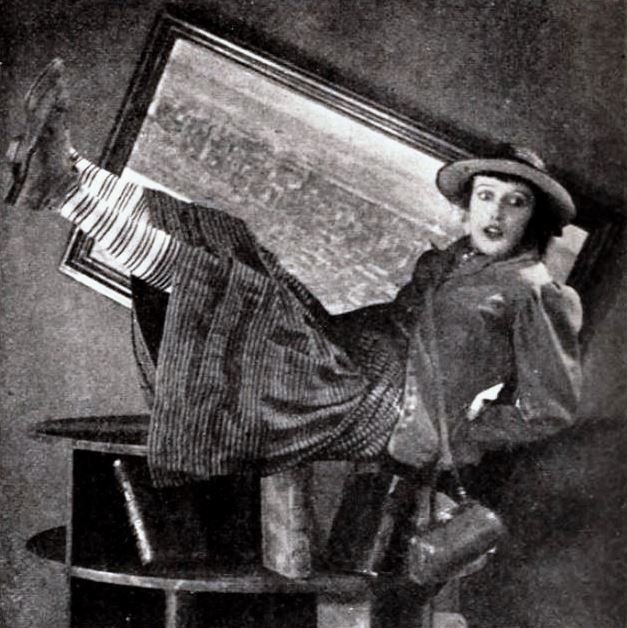15 August 2022
To be head over heels is to tumble, to fall, or to be topsy-turvy, hopelessly out of control, especially in reference to one who is in love. The phrase is odd because one’s normal state is for one’s head to be above one’s heels. If the phrase were to make literal sense, it would be heels over head.
And indeed, that was the original wording of the phrase, and one you still see occasionally, although it is now rare. The phrase, in its original wording, dates to the late fourteenth century, where it is found in the alliterative poem Patience. The passage in question is about Jonah being swallowed by the whale:
He glydes in by þe giles þurȝ glaym ande glette,
Relande in by a rop, a rode þat hym þoȝt,
Ay hele ouer hed hourlande aboute,
Til he blunt in a blok as brod as a halle.(He glides in by the gills through slime and filth,
Rolling in via an intestine, that he thought was a road,
Always head over heel, hurtling about,
Til he landed in a place as broad as a hall.
We start to see the modern phrasing in the late seventeenth century. Why the switch happened is a mystery. It just did. We see the transition in Daniel Manly’s 1678 edition of Henry Hexham’s Dutch-English dictionary:
Rol-bollen, Tumble over head & heels.
And the 1694 edition of The French Rogue has this passage about a man who catches another in bed with his wife. The husband beats the man until he is supine on the floor, at which point the wife reveals that she knows the husband has been cheating on her as well. Surprised that she knows of his indiscretion, the husband allows the man to slip away, whereupon he tumbles down the stairs and escapes:
Upon this Discovery, he suppos’d his Wife had been a Witch, standing confounded and amaz’d in himself, to consider how otherwise such a Secret should come to her Knowledge; and (to be brief) whilst he a little suspended his Fury, my Spark crawl’d from under his unmerciful Clutches, on all Four; and getting to the Stair-head, made, for haste, but one leap to the bottom, and tumbl'd Head over Heels down the other, and ran out of Doors, with a Resolution of never returning.
We start seeing the figurative use of the idiom at the beginning of the eighteenth century. From a 1710 translation of the Pseudo-Lucian’s Philopatris:
What’s the matter, Critias? you seem to have metamorphosed your self into another Shape, contracting your Eyebrows backward; you seem to be wholy lost in Thought, and retir’d into the inmost Cabinet of your Breast, reeling and tumbling Head over Heels, as if, as the Poet terms it, you were playing Christmas Gambols, while a Paleness overspreads your Face.
(The original Greek is κάτω περιπολῶν (kato peripolon), roughly translated as “wandering up and down.”)
Head over heels doesn’t make sense, but that’s the defining characteristic of an idiom, a phrase that does not make literal sense. Besides, being nonsensical is somehow fitting for this phrase.
Sources:
The French Rogue. London: N. Boddington, 1694, 112–13. Early English Books Online (EEBO).
Lucian of Samosata (Pseudo-Lucian). “Philopatris.” J. Drake, trans. The Works of Lucian, vol. 2 of 3. London: Samuel Briscoe, 1710, 2.23. Eighteenth Century Collections Online (ECCO).
Lucian. Lucian Volume 8. M.D. Macleod, trans. Loeb Classical Library 432. Cambridge: Harvard UP, 1967, 416–17. Loeb Classical Library Online.
Manly, Daniel and Henry Hexham. Dictionarium Ofte Woordboeck. Rotterdam: Byde Weduve van Arnout Leers, 1678, sig. Ggg1r. Early English Books Online (EEBO).
Oxford English Dictionary, third edition, June 2013, s.v. head, n.1.; June 2017, heal, n.1 and int.
“Patience.” The Poems of the Pearl Manuscript, fourth edition. Malcolm Andrew and Ronald Waldron, eds. University of Exeter Press, 2002, lines 269–72, 197.
Image credit: Goldwyn Pictures Corporation, 1922. Public domain image.

